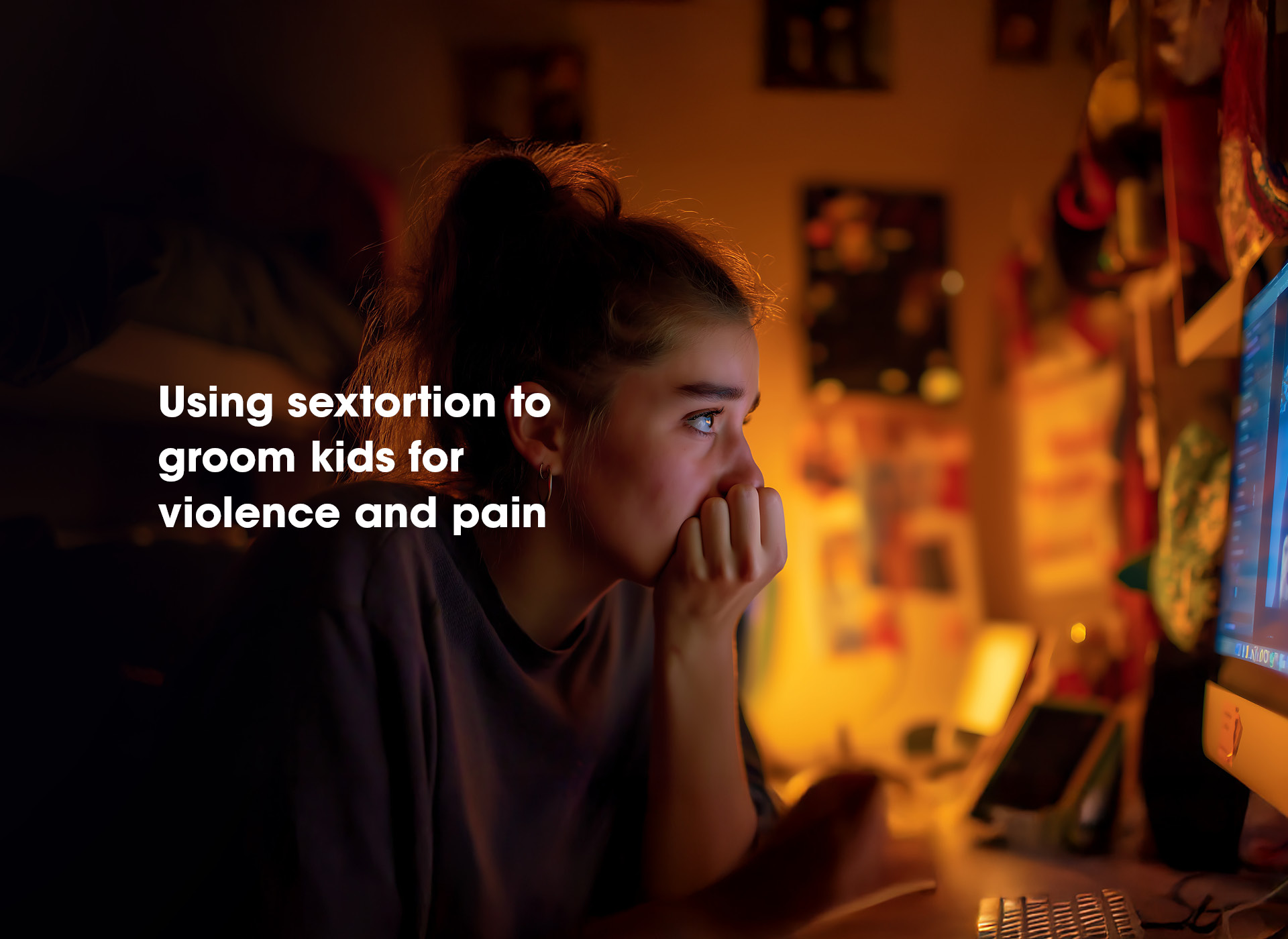Using sextortion to groom kids for violence, pain
We've never seen anything like this.
For years at the National Center for Missing & Exploited Children (NCMEC), reports to our CyberTipline have revealed the extreme and graphic ways children are enticed online for sexual and financial purposes.
Now violent online groups, including one of the most prominent known as “764,” are producing some of the most sadistic online enticement reports we’ve ever seen.
One mother told NCMEC a violent group member made her daughter cut its screen name into her arm with a razor blade, then told her she was a good girl and that they love her. Her mother couldn’t believe her daughter’s response: “I love you, too!”
“These guys are very scary,” the mother told NCMEC. “Just the power they have over my daughter is mind blowing. Please help!”
These violent groups target kids on publicly available messaging platforms, including Discord, Roblox and gaming sites. Initially they befriend them and initiate an online relationship, then force them to record or live-stream acts of harm against themselves and others.
Offenders will often target vulnerable children who already self-harm or have eating or other disorders. Sometimes, they’ll offer the child money or other types of online currency in exchange for producing child sexual abuse material (CSAM) and self-harming videos.
Their demands are shocking and include ordering children to cut themselves, create CSAM, sexually exploit other children (including siblings), harm animals and take their own lives.
In one CyberTipline report, the suspect offered money or other types of online currency in exchange for CSAM:
“Basically, it all started out with him asking her to send him stuff in return for Robux, the digital currency on Roblox. It escalated into him asking her to cut herself, with him even saying, ‘The deeper the more you earn.’”
If they don’t comply, they threaten to harm their families, share their explicit photos on the internet with everyone they know and make fake 911 calls to send law enforcement racing to their homes, known as “swatting.” The footage of these acts is then circulated among members to extort victims further and exert control over them.

In 2024, our CyberTipline received more than 1,300 reports with a nexus to a violent online group, a substantial increase from the previous two years when we started tracking this new crime. During the first six months of this year, there’ve been 1,000 reports.
Based on available data from these reports, most victims of these violent groups were girls ages 14-17 and as young as under 10. Offenders in these cases were predominantly males and included both adults and minors.
Most of the reports for this crime to our CyberTipline, the designated place in the U.S. to report suspected online child sexual exploitation, were submitted by the public. However, most of the millions of reports to our CyberTipline each year are made by social media companies, suggesting that tech is behind the curve in spotting and reporting these relatively new crimes.
The 764 group, one of the most prominent, derived its name from the first three digits of the ZIP codes (76401 and 76402) for Stephenville, Texas. Its founder, Bradley Cadenhead, was a bullied 15-year-old teenager living there when he created the network in 2021. He was eventually prosecuted and sentenced in 2023 to 80 years in prison.
While 764 was one of the first, other violent extremist groups are vying to become the “worst of the worst,” according to Fallon McNulty, who oversees the CyberTipline. Their motivation: controlling, degrading, causing pain to children – and outdoing other violent groups, she said.
“That’s what’s so terrifying about it,” said McNulty, an executive director in our Exploited Children Division. “How do you combat that?”
Federal law enforcement has declared the global 764 network a terrorist organization. The Royal Canadian Mounted Police also identifies it as an "ideological violent extremist network."
Law enforcement has had some successes in court, including the case against Richard Densmore, a 47-year-old Michigan man and member of 764 known as “Rabid” who was sentenced in February for child sexual exploitation.
“Richard Densmore will spend the next 30 years in federal prison for sexually exploiting a child and for his role in creating 764’s online networks that coerced children into recording themselves engaging in self-harm, sexually explicit acts and violence,” said then Attorney General Merrick B. Garland. “No child should have to experience this heinous abuse.”
The FBI encourages parents and caregivers to understand what’s happening, monitor their children’s online activities and take precautionary steps, including:
- Look for fresh cuts, bruises, wounds and scars in unusual patterns;
- Look for sudden behavior and appearance changes;
- Be attentive to children wearing long sleeves or pants in unusual circumstances, such as warm weather;
- Monitor children’s online activity and discuss the risks of sharing information and content; and
- Conduct frequent online searches of family and children’s information to help identify and prevent the spread of personal information on the internet.

NCMEC can help families and victims of these heinous crimes. We have a vast network of counselors throughout the United States. Team Hope offers emotional support for victims and their families. And we can provide attorney referrals to help families navigate the judicial system in civil and criminal cases and seek justice and restitution when their child has been victimized.
First and foremost, report an incident to us at cybertipline.org. Our “Take it Down” program can help victims remove their images from the internet. The free service allows young people to take control by removing or stopping the spread of nude, partially nude or sexually explicit images from participating platforms. Our interactive film, “No Escape Room,” shows how easily children can be caught up in these sextortion webs and helps users recognize the signs of the crime before it’s too late.
For more NCMEC resources, go to https://www.missingkids.org/gethelpnow/exploitation-resources.
